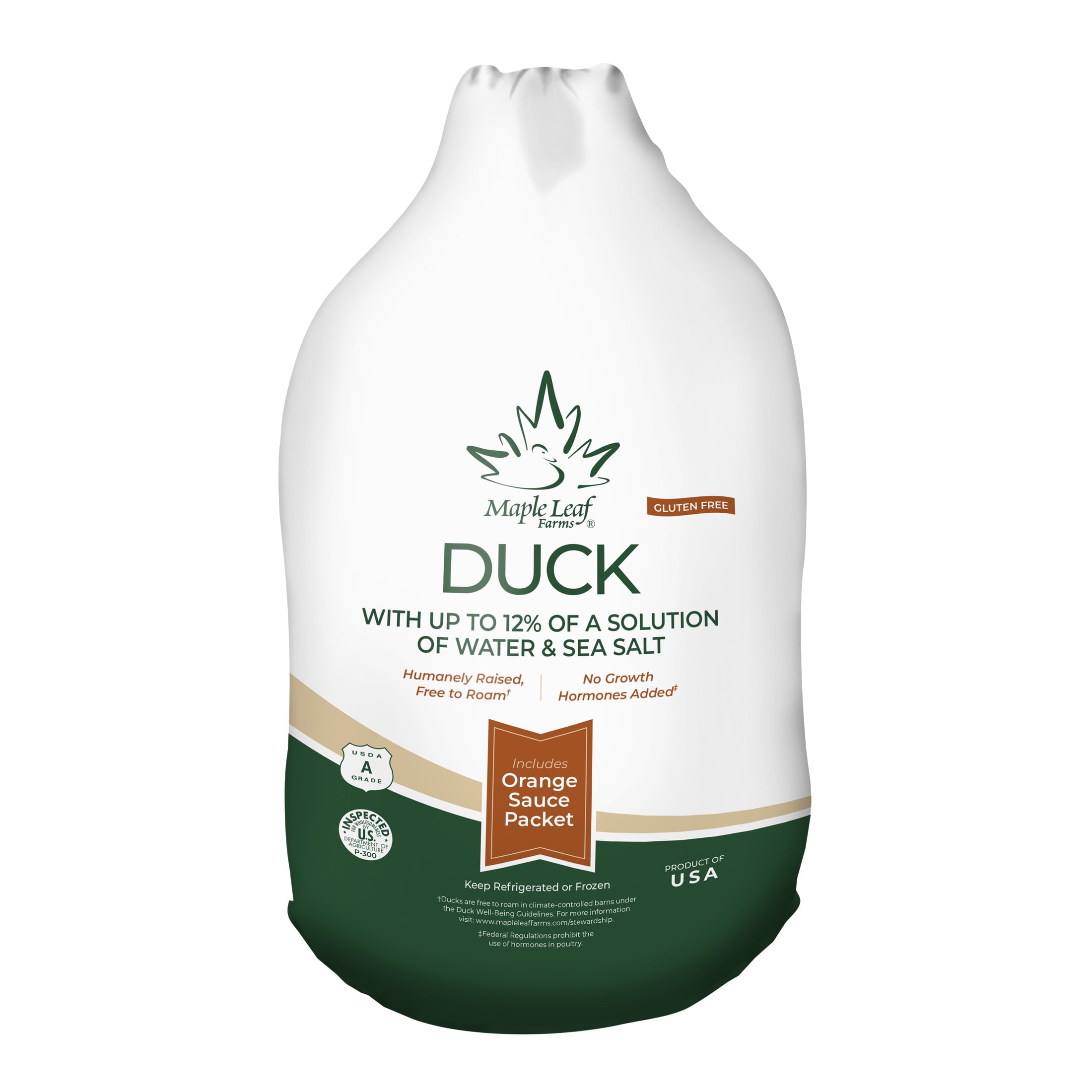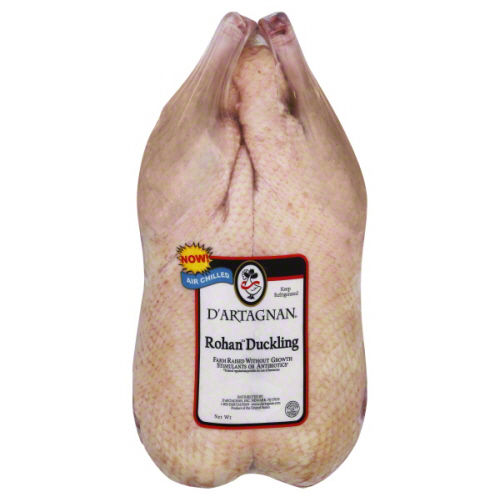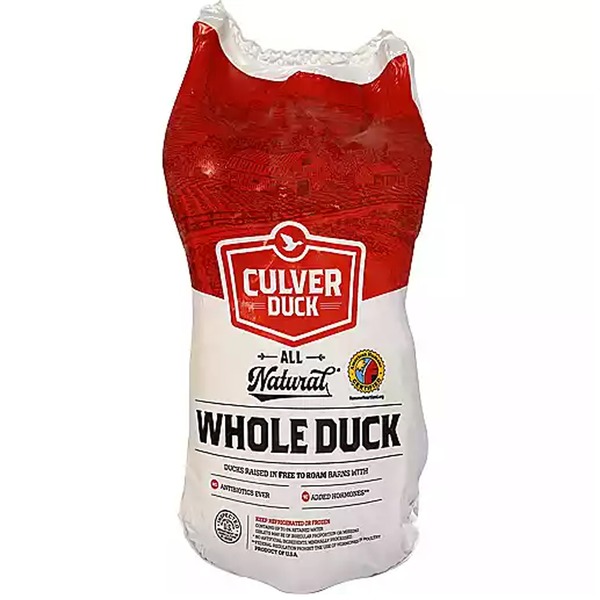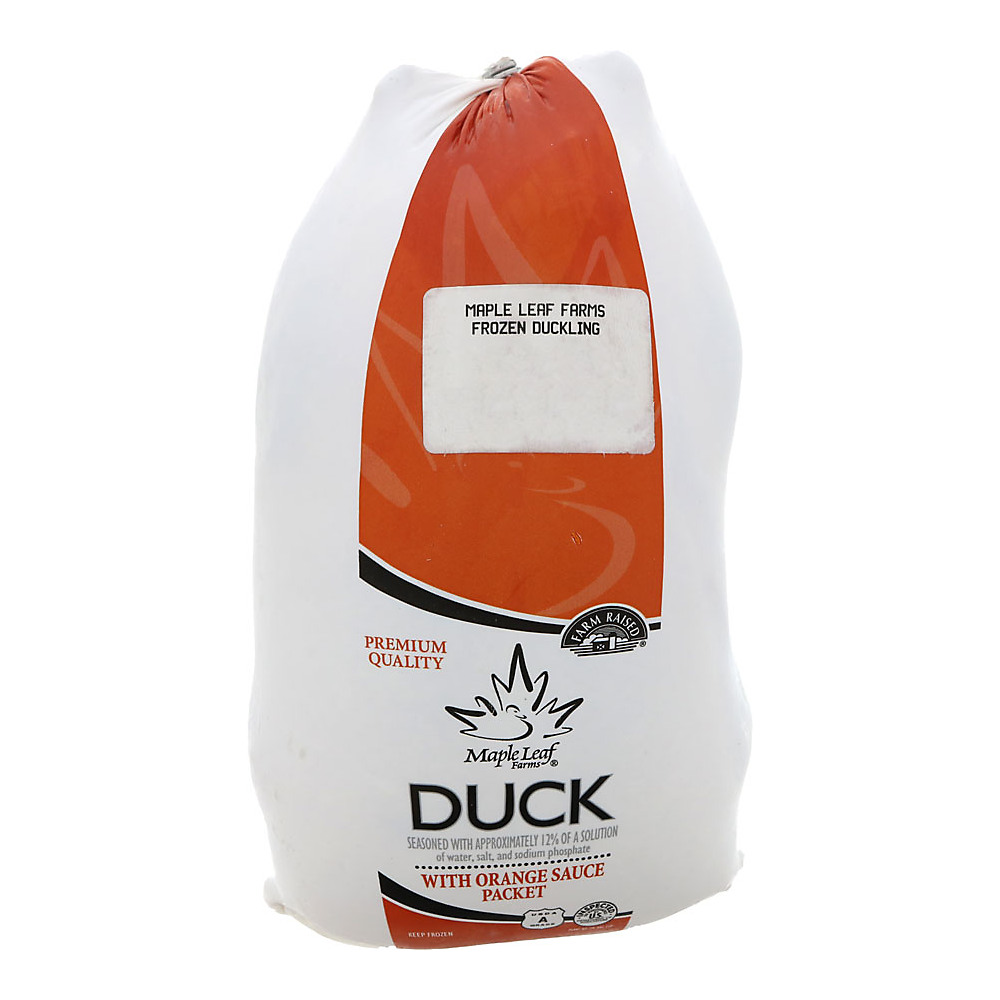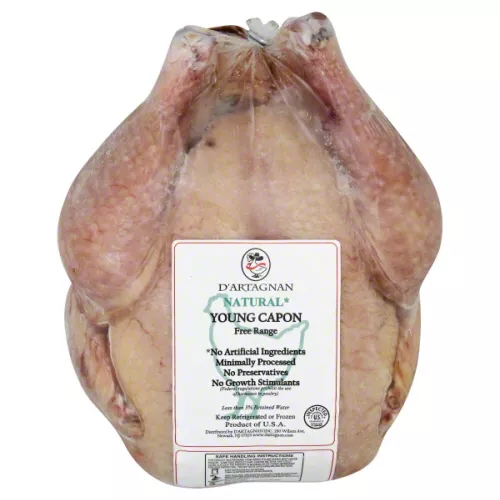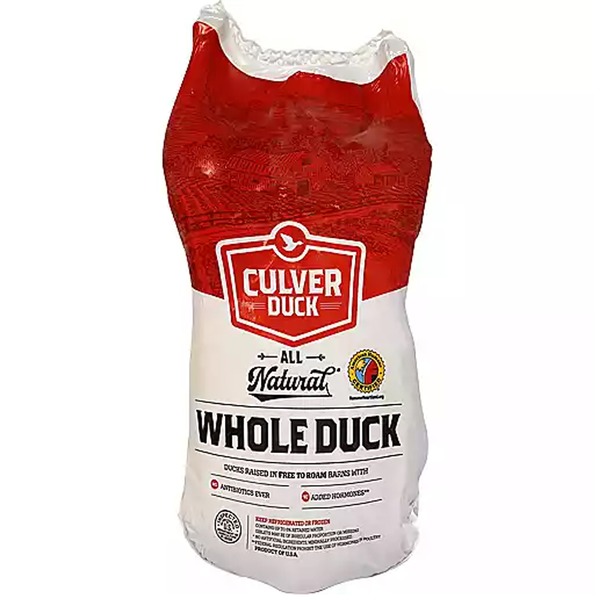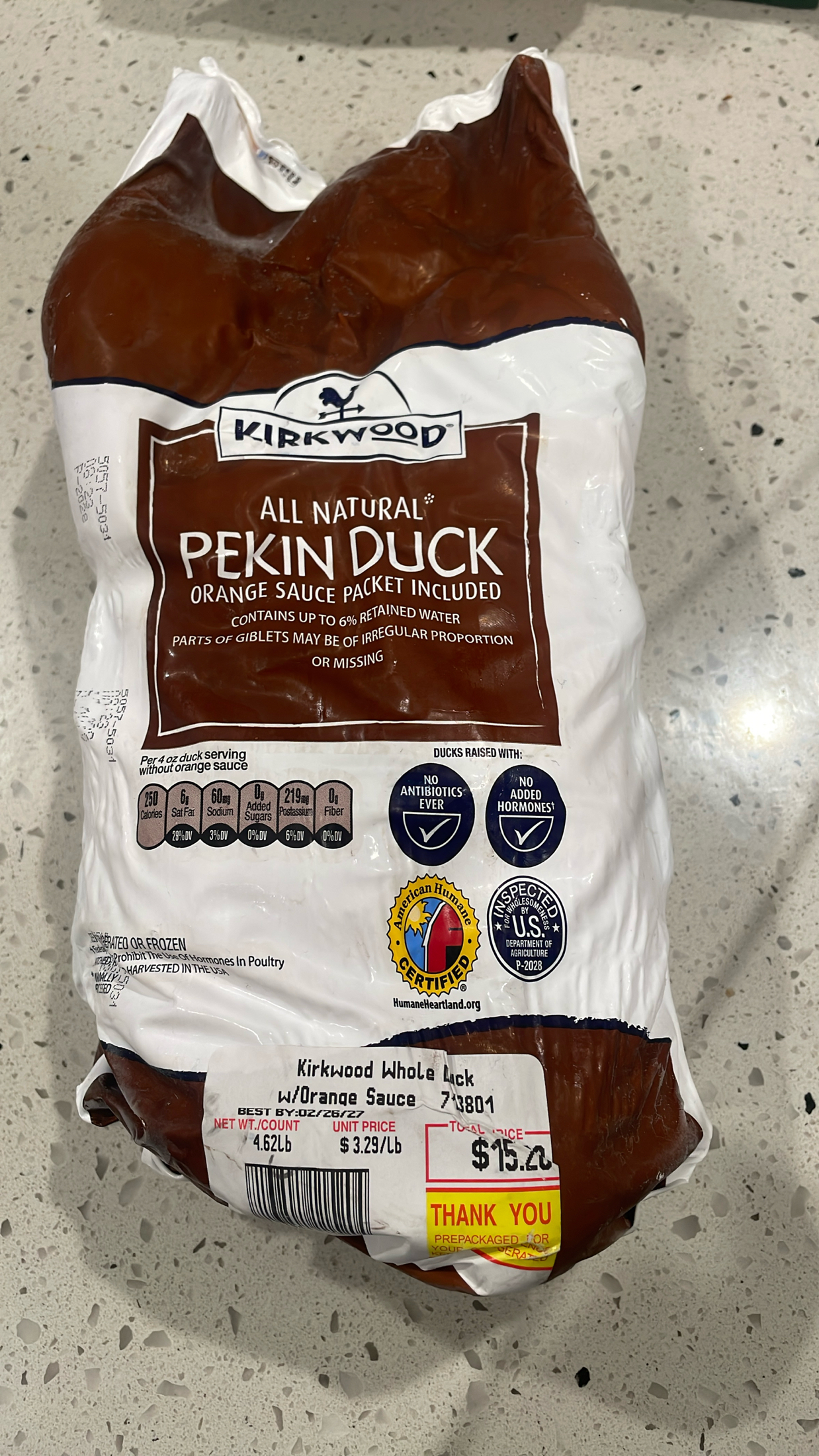MAIN DISHES
Duck
Duck, a waterfowl belonging to the Anatidae family, is a popular culinary choice for many around the world. Known for its rich, dark meat and distinctive flavor, it is often used in both savory and sweet dishes. Duck is a versatile protein that is prized for its unique taste and texture that stands out from other poultry, such as chicken and turkey.
In cooking, duck is often prepared by roasting or braising to ensure its thick layer of fat gets rendered, allowing the skin to become crispy. Some prominent duck dishes include Peking roast duck, duck confit, and French duck à l'orange. It can be served as a main course, as a component of salads, or even as a sausage or pâté.
0%
CARBS
77%
FAT
23%
PROTEIN
176 Duck Products
Maple Leaf Farms All Natural Whole Duck with Orange Sauce, Vacuum Packed Bag , 4
Maple Leaf Farms Roasted 1/2 Duck
Disney Roto Duck 2pk
D'Artagnan Duckling, Rohan
Culver Duck All Natural Whole Frozen Duck
Maple Leaf Farms Frozen Whole Duck with Orange Glaze
Disney Roto Duck 2pk
DArtagnan Capon, Young
Culver Duck Whole Duck
Pekin Duck
Used In 1 Recipe
Duck Is Frequently Used With
Duck FAQ
When cooking with duck, one of the most common questions is how to ensure the skin gets that famous crispy texture. The trick is in proper scoring and drying of the duck skin. Score the skin, not cutting into the meat, to allow the fat to render out easily. Additionally, drying the duck in the fridge uncovered, can help achieve the perfect skin crispiness.
Another common challenge people face is the duck being too fatty or greasy. Duck is indeed a fatty bird and when not cooked properly can result in overly rich and greasy dishes. The key here is slow cooking and rendering the fat properly. Most methods of cooking duck involve slow roasting or confiting (slow cooking in its own fat) and are designed to render out the fat, leaving the meat juicy and tender.
Getting the most out of your duck isn't difficult - save the fat! Duck fat is culinary gold. It's packed with flavor and can be used for roasting potatoes, sautéing vegetables, or flavoring other dishes.
Another little-known trick when dealing with duck is to brine it. Soaking the duck in salt water before cooking helps to break down some of the tougher tissues, making the meat more tender and also helps to balance out some of the richness of the meat.
Also, don't discard the carcass after your meal! You can use it to make a rich and flavorful stock.
How do I get crispy skin on my roast duck?
Why is my cooked duck so greasy?
What can I do with leftover duck fat?
Should I brine duck before cooking?
What can I do with leftover duck carcass?
Why is my duck breast chewy?
How do I know when my duck is cooked?
Can I cook duck breast from frozen?
What herbs go well with duck?
How can I make my duck less gamey?
Expiration & Storage Tips
When does duck expire?
Unopened store-bought duck can last in the refrigerator for 1 to 2 days, but if you freeze it, it can last up to 9 months. If you have cooked duck leftovers, they will last about 3 to 4 days in the fridge and up to 4 months in the freezer. As a rule of thumb, it's always best to check the 'sell by' or 'best by' date on the packaging when you buy it.
How do you tell if duck is bad?
Duck that has gone bad will have a strong, unpleasant smell that is often described as 'rancid.' Its color may also change to a grayish or greenish hue. If you see mold or anything that looks off, don't take a risk - discard it right away. If you're doubtful, use the classic saying: when in doubt, throw it out!
Tips for storing duck to extend shelf life
• Keep duck in the coldest part of your refrigerator, usually the back.
• After purchasing, transfer the duck to a freezer bag or wrap it in aluminum foil before storing in the freezer.
• If freezing, try to remove as much air as possible from the packaging.
• Always thaw duck in the refrigerator, not on the counter. This helps minimize bacterial growth.
EXPIRES WITHIN
6 - 21
DAYS
Substitutes
Health Info
Macros
0g
CARBS
55g
FAT
16g
PROTEIN
Allowed on these diets
LOW FAT
HIGH CALCIUM
KETO
PALEO
WHOLE 30
MEDITERRANEAN
LOW CARB
LACTOSE FREE
GLUTEN FREE

